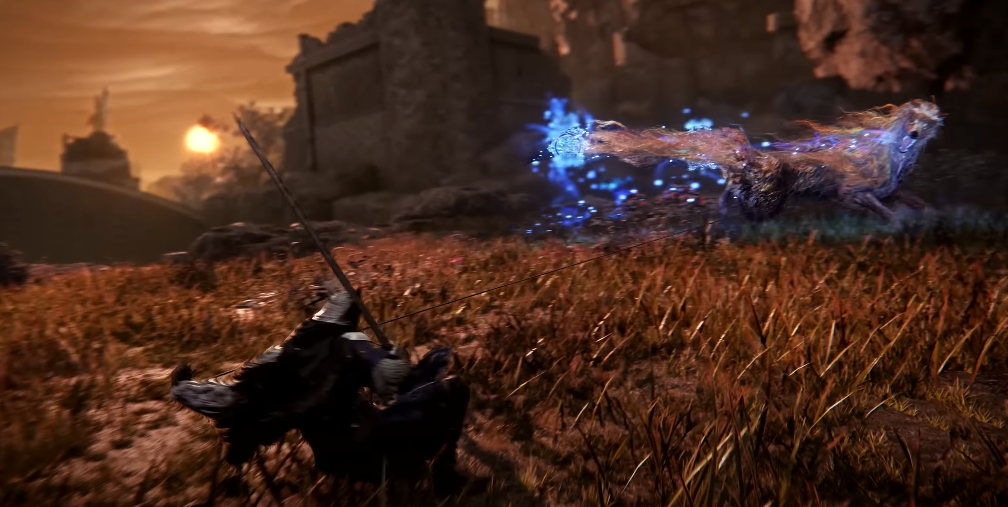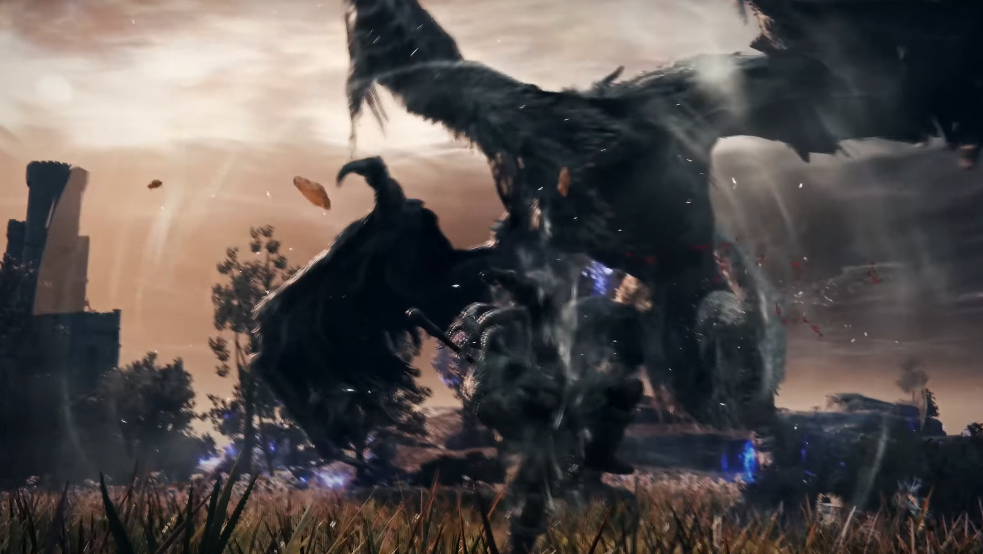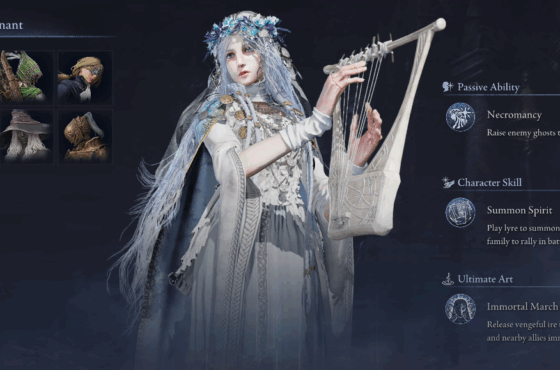

Elden Ring: Nightreign, the standalone co-op roguelike spin-off from FromSoftware, is set to release on May 30, 2025. Departing from the traditional character creation system, Nightreign introduces Nightfarers—eight pre-defined classes, each with unique abilities and playstyles designed for strategic co-op gameplay.
Set in the procedurally generated realm of Limveld, players must navigate a three-day cycle, facing escalating challenges and culminating in intense boss battles. Each Nightfarer class offers distinct combat roles, encouraging players to form balanced teams and adapt to the dynamic environment.
This guide provides a comprehensive overview of all eight Nightfarer classes, detailing their abilities, playstyles, and roles within a team. Whether you prefer close-quarters combat, ranged attacks, or supportive roles, understanding each class will be crucial to your success in Nightreign.
All Nightfarer Classes in Elden Ring: Nightreign
1. Wylder
Wylder Class Overview
Wylder is a balanced, all-rounder class in Elden Ring: Nightreign, designed to be accessible for newcomers while offering depth for experienced players. Equipped with a greatsword and a small shield, Wylder excels in melee combat and mobility, making him a versatile choice for various combat scenarios.
Abilities
Passive Ability: Sixth Sense
Wylder’s passive ability, Sixth Sense, allows him to survive a fatal blow once per run. This “cheat death” mechanic provides a safety net during challenging encounters. The ability can be refreshed by dying or passing through a Site of Grace.
Character Skill: Claw Shot
Claw Shot is a grappling hook that enables Wylder to pull enemies closer or propel himself towards foes or terrain. This skill enhances mobility and can disrupt enemy formations. Holding the input allows for manual aiming, providing strategic positioning options.
Ultimate Art: Onslaught Stake
Wylder’s Onslaught Stake is a powerful, short-range attack that fires an explosive bolt from his wrist-mounted crossbow. Charging the attack increases its damage and stagger potential, making it effective against larger enemies and bosses.
Starting Equipment
-
Weapon: Wylder’s Greatsword (Stamp, Upward Cut)
-
Shield: Wylder’s Small Shield (Buckler Parry)
This equipment setup provides a balance between offense and defense, suitable for various combat situations.
Playstyle and Strategy
Wylder’s balanced stats and versatile abilities make him adaptable to different combat roles. His Claw Shot skill allows for quick repositioning, enabling both offensive and defensive maneuvers. The Onslaught Stake serves as a high-damage option for critical moments, particularly effective when charged.(
Strengths:
-
Versatility in combat roles
-
Enhanced mobility with Claw Shot
-
Survivability through Sixth Sense
Weaknesses:
-
Lacks specialization in a particular combat style
-
Ultimate ability has a long cooldown, requiring strategic use
Wylder stands as a compelling culmination of several design philosophies FromSoftware has refined over the years. While he is a fresh face in Elden Ring: Nightreign, his mechanics echo past characters and systems from across the Soulsborne lineage.
Inspiration from Soulsborne Classes
Mechanically, Wylder resembles the classic Knight or Warrior archetypes from Dark Souls and Elden Ring—balanced, melee-focused builds that favor survivability and controlled aggression. The use of a greatsword paired with a small shield feels like a spiritual successor to the Vagabond or Confessor classes in Elden Ring, offering players the tools to learn both defensive and offensive play.
However, unlike the traditionally slower and more methodical style of past strength-based classes, Wylder introduces agility and utility through his Claw Shot. This significantly enhances verticality and movement, setting him apart from his predecessors.
Grappling Hook – A Nod to Sekiro
Wylder’s Claw Shot is unmistakably reminiscent of the Grappling Hook from Sekiro: Shadows Die Twice. This mechanic, once unique to Sekiro’s stealth-action gameplay, now reappears in a more RPG context, merging exploration and combat mobility.
Whereas Sekiro used grappling primarily for traversal and sneak attacks, Wylder leverages it for dynamic repositioning in battle and strategic pulls. This inclusion not only modernizes movement within the Elden Ring universe but also suggests FromSoftware’s growing commitment to action fluidity and environmental interactivity.
A Bridge Between Playstyles
Wylder feels like a bridge between Soulslike tradition and FromSoftware’s more experimental designs. He’s sturdy like a knight, mobile like a shinobi, and tactically adaptive—making him an ideal entry point for players both new to Nightreign and familiar with the studio’s prior works.
https://www.youtube.com/watch?v=jStF2eZ72tw
In short, Wylder doesn’t just reflect what FromSoftware has done in the past—he refines it. For many, he could become the definitive way to experience Nightreign’s blend of tight combat and expanded traversal.
2. Guardian
Guardian Class Overview
The Guardian is a formidable tank class in Elden Ring: Nightreign, designed to absorb damage and protect allies. With high vigor, endurance, and strength, the Guardian excels in frontline defense, crowd control, and team support.
Abilities
Passive Ability: Steel Guard
When guarding with a shield, activating Steel Guard allows the Guardian to brace for impact, significantly enhancing block strength. While in this stance, movement is restricted, but stamina consumption is reduced, enabling the Guardian to withstand heavy attacks without staggering.
Character Skill: Whirlwind
Whirlwind is an area-of-effect skill where the Guardian uses his wings to create a powerful cyclone, knocking back and damaging nearby enemies. Charging the skill increases its range and potency, making it effective for crowd control and disrupting enemy formations.
Ultimate Art: Wings of Salvation
Always good to have the in-game camera work for you…
The Guardian leaps into the air and crashes down, dealing significant area damage and creating a protective zone that boosts allies’ damage negation. This ultimate can also revive downed teammates within its radius, making it a crucial tool for team survival during intense battles.
Starting Equipment
-
Weapon: Guardian’s Halberd (Charge Forth)
-
Shield: Guardian’s Greatshield (Shield Bash)
This equipment setup provides a balance between offense and defense, suitable for various combat situations.
Playstyle and Strategy
The Guardian is ideal for players who prefer a defensive and supportive role. Utilizing Steel Guard allows for absorbing enemy attacks, protecting both the Guardian and nearby allies. Whirlwind effectively manages groups of enemies, while Wings of Salvation serves as both an offensive and defensive tool, dealing damage and providing team support. Positioning is key; staying between enemies and allies maximizes the Guardian’s protective capabilities
In summary, the Guardian class offers a robust and supportive playstyle, excelling in defense and crowd control. With abilities tailored to protect and assist teammates, the Guardian is a valuable asset in any team composition.
3. Duchess – Stealthy Assassin
Duchess Class Overview
The Duchess is a dexterity-based, agile assassin class in Elden Ring: Nightreign. She excels in burst damage and evasion, making her ideal for players who prefer a hit-and-run playstyle. Her low defense is compensated by high mobility and potent offensive capabilities.
Abilities
Passive Ability: Magnificent Poise
This passive enhances the Duchess’s dodging capabilities, allowing her to chain multiple evasive maneuvers with increased invincibility frames. This makes her exceptionally nimble, capable of avoiding attacks more effectively than other classes.
Character Skill: Restage
Restage enables the Duchess to reapply the damage and status effects dealt to enemies in the preceding seconds. This skill can be activated during most animations, including while being hit, but not when downed.
Ultimate Art: Finale
Finale grants the Duchess and nearby allies a brief period of invisibility, allowing for strategic repositioning, ambushes, or disengagement from combat. Enemies may still attack the last known location of invisible players.
Starting Equipment
-
Weapon: Duchess’s Dagger with Magic Dagger Ash of War, providing a magic damage buff at the cost of FP.
-
Item: Shield Grease, enhancing guarding ability and damage negation.
Playstyle and Strategy
The Duchess thrives in scenarios requiring agility and precision. Her playstyle revolves around quick engagements, exploiting enemy vulnerabilities, and retreating before retaliation. Utilizing Restage after significant damage bursts can maximize her offensive output. Finale serves as a tactical tool for both offense and defense, facilitating surprise attacks or safe withdrawals.
Inspiration from Bloodborne
The Duchess’s design and mechanics draw notable inspiration from Bloodborne. Her movement, characterized by swift dodges and backflips, mirrors the quickstep mechanics of Bloodborne, emphasizing agility over defense. This design choice aligns with FromSoftware’s intent to incorporate elements from their previous titles into Nightreign.
In summary, the Duchess offers a high-risk, high-reward experience for players who favor speed and precision. Her abilities and playstyle provide a fresh yet familiar experience, especially for fans of Bloodborne‘s fast-paced combat.
4. Recluse – Elemental Sorceress
Recluse Class Overview
The Recluse is a high-risk, high-reward spellcaster in Elden Ring: Nightreign, specializing in ranged magic damage and team support. She boasts the highest FP among all classes, enabling sustained spellcasting, but has the lowest HP, making her vulnerable in close combat. Her unique mechanics revolve around collecting elemental residues to fuel powerful spells and support abilities.
Abilities
Passive Ability: Elemental Defense
Recluse can collect elemental residues from enemies and allies, which replenish her FP and can be used to enhance her spells. This mechanic encourages strategic targeting and positioning to maximize residue collection.
Character Skill: Magic Cocktail
By combining collected elemental residues, Recluse can unleash potent spells tailored to specific elemental affinities. The effectiveness of these spells depends on the combination of residues used, allowing for versatile combat strategies.
Ultimate Art: Soulblood Song
Recluse brands nearby enemies with blood sigils, increasing the damage they take and restoring HP and FP to allies who attack them. This ability provides both offensive and supportive benefits, making it invaluable during intense battles.
Starting Equipment
-
Weapon: Recluse’s Staff, equipped with Glintstone Pebble and Glintstone Arc spells.
This setup offers a balance between single-target and area-of-effect magic, suitable for various combat scenarios.
Playstyle and Strategy
Recluse excels at dealing sustained magic damage from a distance while providing support to her team. Her gameplay involves:
-
Residue Management: Collecting elemental residues to fuel her Magic Cocktail spells.
-
Positioning: Maintaining distance from enemies to compensate for her low HP.
-
Team Support: Using Soulblood Song to enhance team survivability and damage output.
Mastering Recluse requires understanding elemental interactions and precise timing to maximize her abilities’ effectiveness.
Recluse’s design draws inspiration from the Nox sorcerers in Elden Ring, known for their dark aesthetics and unique magic. Her appearance, featuring dark skin and white hair, resembles the Nox, suggesting a thematic connection.
Additionally, her complex spellcasting mechanics and reliance on elemental combinations echo the intricate magic systems found in Demon’s Souls and Dark Souls, where strategic use of magic and resource management are crucial for success.
In summary, the Recluse offers a challenging yet rewarding experience for players who enjoy strategic spellcasting and team support roles. Her unique mechanics and thematic ties to previous FromSoftware titles make her a standout choice for those seeking depth and complexity in their gameplay.
5. Ironeye – Precision Archer
Ironeye Class Overview
The Ironeye is a precision-based archer class in Elden Ring: Nightreign, designed for players who prefer ranged combat and strategic support. Equipped with abilities that enhance team performance and control the battlefield, Ironeye excels in identifying enemy weaknesses and exploiting them from a distance.
Abilities
Passive Ability: Eagle Eye
Eagle Eye increases the item drop rate from enemies, benefiting the entire team by providing more resources for upgrades and survival.
Character Skill: Marking
Marking allows Ironeye to tag enemies, creating temporary weak points that increase the damage they take. This skill also enables Ironeye to dash through enemies, offering both offensive and defensive tactical options.
Ultimate Art: Single Shot
Single Shot is a powerful attack where Ironeye fires a supersonic arrow that pierces through enemies, dealing significant damage and knockback. This ability is effective against both single targets and groups, providing crowd control and high burst damage.
Starting Equipment
-
Weapon: Longbow or Greatbow (specifics may vary)
Ironeye starts with a bow suited for long-range engagements, emphasizing precision and damage over rapid firing.
Playstyle and Strategy
Ironeye’s gameplay revolves around maintaining distance from enemies while supporting the team through debuffs and increased loot acquisition. Utilizing Marking to expose enemy weaknesses and Single Shot for high-damage opportunities makes Ironeye a valuable asset in both offensive and supportive roles.
Strengths:
-
High precision and damage from a distance
-
Enhances team loot and damage output
-
Effective crowd control with ultimate ability
Weaknesses:
-
Vulnerable in close combat
-
Reliant on positioning and timing
Ironeye’s design draws inspiration from the archer archetypes in previous FromSoftware games, such as the bow-wielding characters in Dark Souls and Elden Ring. However, Ironeye expands upon this concept by integrating team support mechanics and enhanced mobility, offering a more dynamic and engaging ranged combat experience.
In summary, Ironeye offers a unique blend of precision, support, and strategic gameplay, making it an excellent choice for players who enjoy controlling the battlefield from afar while contributing significantly to their team’s success.
6. Raider – Brutal Juggernaut
Raider Class Overview
The Raider is a formidable melee class in Elden Ring: Nightreign, designed for players who favor strength-based combat. Wielding colossal weapons, the Raider excels in delivering devastating blows and controlling the battlefield. His abilities are tailored to absorb damage and retaliate with overwhelming force, making him a cornerstone in any team composition.
Abilities
Passive Ability: Fighter’s Resolve
Fighter’s Resolve enhances the Raider’s resilience during combat. When using the Retaliate skill, the Raider cannot be knocked down, allowing him to withstand heavy attacks while preparing his counterstrike. Additionally, taking damage while charging Retaliate boosts its potency, rewarding aggressive playstyles.
Character Skill: Retaliate
Retaliate is a powerful unarmed attack where the Raider assumes a defensive stance before delivering a staggering uppercut. While charging, incoming damage is reduced, and the attack’s strength increases based on the damage absorbed. This skill is effective against larger enemies, causing significant stagger and creating opportunities for allies.
Ultimate Art: Totem Stela
JUMP ATTACK!!!
Totem Stela summons a massive tombstone at the Raider’s location, dealing area damage upon emergence. This structure provides a protective aura that buffs nearby allies, enhancing their combat effectiveness. Additionally, the tombstone can be used as a platform, offering strategic advantages such as elevated positions for ranged attacks or plunging strikes.
Starting Equipment
-
Weapon: Colossal two-handed axe (specifics may vary)
The Raider begins with a massive weapon suited for delivering high-damage attacks and breaking enemy defenses.
Playstyle and Strategy
The Raider thrives in the heart of battle, absorbing damage and retaliating with powerful strikes. His abilities encourage a playstyle that embraces risk, turning incoming damage into an opportunity for devastating counterattacks. Positioning is crucial; utilizing Totem Stela can control the battlefield, provide cover, and offer tactical advantages for both the Raider and his allies.
Strengths:
-
High durability and damage output
-
Effective crowd control with Retaliate
-
Team support through Totem Stela buffs
Weaknesses:
-
Limited mobility due to heavy equipment
-
Requires precise timing to maximize Retaliate effectiveness
7. Executor – Parry Specialist
**Cough Se.. **Cough** Kiro…
Executor Class Overview
The Executor is a parry-focused melee class in Elden Ring: Nightreign, wielding a katana and excelling in close-quarters combat. Drawing inspiration from Sekiro: Shadows Die Twice, the Executor emphasizes precise timing and counterattacks, rewarding players who master deflection mechanics.
Abilities
Passive Ability: Unyielding Spirit
While official details are pending, leaks suggest that Unyielding Spirit grants the Executor a temporary buff upon recovering from a status abnormality, such as poison or bleed. This mechanic encourages aggressive play, turning adversity into advantage.
Character Skill: Bewitched Sword
The Bewitched Sword skill allows the Executor to unsheathe an enchanted blade, enabling the deflection and nullification of enemy attacks. This skill mirrors the parry mechanics found in Sekiro, emphasizing timing and precision.
Ultimate Art: Aspects of the Crucible (Beast)
The Executor’s ultimate ability, Aspects of the Crucible (Beast), transforms them into a primordial beast, enhancing their combat capabilities. This transformation likely grants increased damage, speed, and unique attacks, turning the tide of battle.
Starting Equipment
-
Weapon: Katana imbued with Faith-based energy, featuring a glowing effect and vine-like designs.
The Executor’s weaponry suggests a blend of physical prowess and mystical elements, aligning with their transformative ultimate ability.
Playstyle and Strategy
The Executor is ideal for players who favor a reactive combat style, focusing on parrying and counterattacking. Mastery of timing is crucial, as successful deflections can stagger enemies and create openings for powerful strikes. The Unyielding Spirit passive encourages resilience, turning status ailments into opportunities for buffs. Utilizing the Bewitched Sword skill effectively can control the flow of battle, while the Aspects of the Crucible (Beast) ultimate serves as a game-changing transformation during critical moments.
Inspirations from Previous FromSoftware Titles
The Executor’s design and mechanics draw heavily from Sekiro: Shadows Die Twice, particularly in the emphasis on parrying and precise combat. The transformation aspect of the ultimate ability echoes the Crucible Knight abilities from Elden Ring, suggesting a fusion of concepts from both titles. Additionally, the aesthetic and combat style may remind players of Dark Souls II‘s Sir Alonne, known for his katana mastery and disciplined fighting techniques.
In summary, the Executor offers a challenging yet rewarding experience for players who appreciate skill-based melee combat. With a toolkit that emphasizes deflection, resilience, and transformation, the Executor stands as a testament to FromSoftware’s evolving combat design.
Limveld Await
As Elden Ring: Nightreign approaches its May 30, 2025 release, understanding the unique attributes of each Nightfarer class becomes essential for players aiming to master the game’s cooperative and roguelike elements.
Each class offers a distinct gameplay experience, from the agile Wylder to the formidable Raider, allowing players to choose roles that best suit their preferred playstyles. The game’s design encourages strategic team compositions and adaptability, ensuring that every run through Limveld offers fresh challenges and opportunities.
Prepare to embark on a new journey in the Elden Ring universe, where collaboration and mastery of your chosen Nightfarer will determine your fate against the encroaching darkness.
Pre-Order Elden Ring Nightreign
Elden Ring: Nightreign [Collector’s Edition]
Elden Ring: Nightreign [Seekers Edition]
- Elden Ring: Nightreign
- May 23, 2025










































